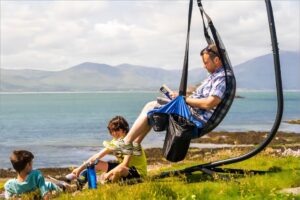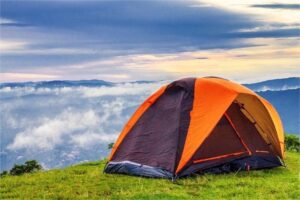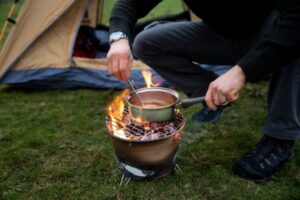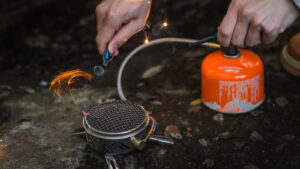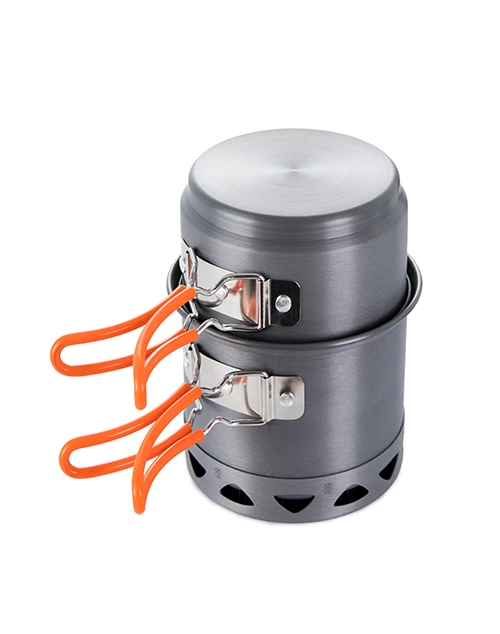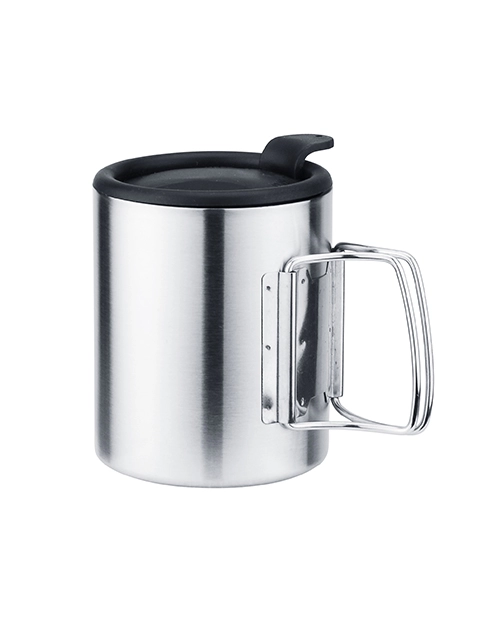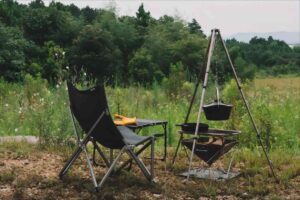
Beats spending the weekend camping in the natural outdoors. Camping, when done correctly, is an excellent way to spend time with family. However, this does not excuse you from taking all necessary measures! In reality, some of the most fundamental camping safety requirements are sometimes forgotten owing to enthusiasm or a lack of planning.
Whether you are staying in a cottage, hauling an RV, or pitching a tent in the woods, there are several safety considerations that must be addressed.
If you’re considering a camping vacation, there are a few essentials to pack. Being prepared may make your journey safer and more enjoyable.
Common Camping Injuries and First Aid
Please note that these first aid measures are preliminary emergency measures and are not a substitute for professional medical assistance. In an emergency, contact professional medical personnel as soon as possible.
| Injury Type | First Aid Measures |
| Abrasions and Lacerations | Clean the wound with soap and water, apply an antiseptic, and cover with a clean bandage. |
| Sprains and Strains | Rest, ice, compression, and elevation (RICE principle). |
| Fractures | Immobilize the injured area, apply a splint, and seek medical attention immediately. |
| Burns | Cool the burn with running water, apply burn cream, and avoid using ice directly on the skin. |
| Frostbite | Immerse the frostbitten area in warm water, avoid rubbing or heating. |
| Heatstroke | Move the person to a cool place, provide fluids, loosen clothing, and use cold compresses. |
| Dehydration | Encourage the person to drink plenty of water or an electrolyte solution. |
| Cardiac Arrest | Perform cardiopulmonary resuscitation (CPR) and use an automated external defibrillator (AED) if available. |
| Allergic Reactions | If the person has a severe allergic reaction, such as difficulty breathing, use an epinephrine auto-injector (EpiPen) immediately. |
| Animal Bites | Clean the wound with soap and water, apply an antiseptic, and cover with a bandage. Seek medical attention. |
| Hypothermia | Move the person to a warm place, remove wet clothing, wrap in blankets, and give warm drinks if conscious. Seek medical attention. |
Bring a First Aid Kit with You
Packing camping first aid items should be at the top of your to-do list while preparing for your camping vacation. Many campgrounds are in remote places, making it difficult to get a doctor in an emergency.
A well-stocked first aid kit should be able to help you deal with minor medical problems on your own or at least save you from visiting a doctor.
A basic first-aid kit should include antibiotic ointment, antiseptic wipes, adhesive patches, paracetamol, and sterile gauze. If your camper suffers from a life-threatening allergy, pack an EpiPen. Keep first-aid supplies in a waterproof box or bag with you at all times.
Get vaccinated
Before going camping, make sure you have all of your vaccines up to date, including tetanus. This might help you avoid some infections and ailments when camping.
Be Updated with the Weather Forecast
Conduct preliminary research on the weather conditions in the area where you will be camping, which you can accomplish by checking the weather prediction to determine what sort of weather you will be experiencing.
Remember that, due to the unpredictable nature of weather, you must keep an eye on the current weather patterns during your camping trip.
If you can hear thunder from 10 miles away during a storm, you should seek shelter immediately.
Water is a great conductor of electricity. So, if you’re on a watercraft, such as a boat, get away as quickly as possible.
If you have a car, utilize it instead of tents for shelter. If a car is struck, its tires will absorb the electricity, reducing the harm. This is a better alternative if you are not camping in a campground with a designated shelter. If possible, remain on the lowest floor and away from the windows. If there are no other options for shelter, choose a low spot away from trees and metallic objects such as posts and fences.
Keep your hands clean.
Wash your hands often, especially before eating. If soap and water are not available, use hand sanitizer instead.
Store food safely and securely.
Store food in sealed, waterproof bags or containers. Keep containers in an insulated cooler. This keeps the food fresh and prevents wild creatures from eating it.
Purify Your Water When Camping
If you enjoy camping and traveling, you may have encountered the problem of water purification. The taste of water from a stream in the woods is one of many people’s Favorite aspects of camping.
However, many are unaware of how filthy their water is. The notion of drinking such terrible water might make you squirm. There are techniques to cleanse water when camping. To clean and disinfect the water, use a filter or chemical treatment.
It’s also a good idea to get a portable filtering device. Not only will this provide you with clean water throughout your journey, but it may also be utilized at home if you reside in an area with bad tap water.
It is always crucial to have clean water while traveling, but it is especially important for your health when enjoying the vast outdoors.
Practice campfire safety.
If your campsite allows fires and you decide to construct one, do so carefully. Choose a location without overhanging tree branches; make sure it has a metal fire ring or is surrounded by rocks; and have a bucket of water or a shovel handy in case things go out of hand. Never leave your campfire unattended. Before leaving your campground, ensure your campfire is totally extinguished.
Always Keep Warm
It is essential to wear warm clothing when camping in the winter. Make sure your garments are waterproof, and keep dry clothes on hand in case of an emergency.
It is also critical to have the appropriate tent for the weather conditions and to be aware of any safety dangers in the region where you are camping.
Pack extra blankets and clothes to keep you warm. Prepare for the cold and be aware of the signs of pneumonia and frost.
To keep you dry, place a plastic ground cover under your tent. Wear layers, drink plenty of water, and avoid alcoholic beverages.
Protect against carbon monoxide poisoning.
To avoid carbon monoxide poisoning, never use fuel-burning equipment like gas stoves, heaters, lanterns, or charcoal grills inside or near a tent, camper, or other enclosed shelter.
Avoid wild animals and protect family pets.
Some wild animals transmit illnesses that are harmful to humans. Enjoy seeing wild creatures from a safe distance in their natural environment. Make sure your family pets are vaccinated and keep a careful check on them. Check for ticks and get rid of them right away. Ensure that pets have sufficient water, food, and shelter.
Fight the bug bite.
Apply DEET-containing insect repellent to exposed skin to keep mosquitos and other insects at bay. Using an insect repellent is the most effective strategy to avoid mosquito-borne infections like Zika and dengue.
Protect yourself from the sun.
Apply sunscreen with a minimum SPF of 30 and cover up with clothes, a wide-brimmed hat, and sunglasses.
Choose safe activities
Camping is an excellent way to enjoy outdoor activities such as strolling, hiking, bicycling, and swimming. Make sure to carry safety gear such as helmets, strong shoes, and life jackets.
Camping food ideas
The following camping food ideas can be adjusted to your taste, but you can also try out ingredients you haven’t experienced before.
| Menu | Ingredients (adjustable) | Preparation | Nutritional Highlights |
| Breakfast | |||
| Oatmeal | Oatmeal, milk/water, fruits, nuts | Cook oatmeal, add milk or water, and top with fruits and nuts | High in fiber and protein |
| Egg Sandwich | Eggs, bread, lettuce, tomato, cheese | Fry eggs and put them between bread with lettuce, tomato, and cheese | Protein-rich and balanced nutrition |
| Fruit Salad | Various seasonal fruits | Cut fruits into pieces and mix together | Rich in vitamins and refreshing |
| Lunch | |||
| Sandwich | Bread, meat/seafood/vegetables, cheese | Put various ingredients between bread | Customizable to personal taste |
| Salad | Lettuce, vegetables, fruits, nuts, salad dressing | Mix various ingredients and top with salad dressing | High in fiber and light |
| Onigiri | Rice, nori seaweed, meat floss/salmon/pickles | Form rice into triangles and wrap with nori seaweed and your favorite filling | Portable and easy to eat, various flavors |
| Dinner | |||
| Pasta | Pasta, meat sauce/seafood sauce/vegetable sauce | Cook pasta and mix with your favorite sauce | Carbohydrate-rich and satisfying |
| Curry Rice | Rice, curry, vegetables, meat | Mix curry and rice, and serve with vegetables and meat | Unique flavor and nutritious |
| Barbecue | Meat, vegetables, seasonings | Skewer meat and vegetables and grill over a campfire | Delicious aroma, perfect for sharing |
Healthy Diet Tips
- Eat more fruits and vegetables: Vitamins and fiber are essential nutrients for the body.
- Pay attention to protein intake: Protein helps repair muscle tissue.
- Drink more water: Keep your body hydrated.
- Avoid high-sugar and high-salt foods: Too much sugar and salt are not good for your health.
FAQ
How to Choose the Right Tent for Your Climate?
| Season | Tent Type | Features | Applicable scenarios |
| Spring and Autumn | 3-season tent | Lightweight, well-ventilated, suitable for variable weather | Camping and hiking |
| Summer | Single-layer tent or sunshade | Lightweight, extremely ventilated, suitable for warm weather | Beach camping and picnics |
| Winter | 4-season tent | Windproof, snowproof, and warm, suitable for harsh weather conditions | Alpine and winter camping |
What should I pack for a weekend camping trip?
Essential camping gear: tent, sleeping bag, moisture-proof mat, cushion, pillow, camping light, food and water, first aid kit, insect repellent, wet wipes/tissues, rain gear, sunscreen, backpack
If the temperature at the campsite is low at night, you also need to consider warm clothes, hats and gloves. If you want to have a picnic, you need to bring cooking utensils such as camping stoves, such as campfire grills, plates, cups, cutlery, and ingredients and fuel or wood for cooking.
How do I stay safe while camping in the wilderness?
Before departure, learn about the weather conditions and potential dangers at your destination, such as whether there will be rain, snow, or extreme weather, and inform your friends and family about your trip. Pack essential equipment, such as a first aid kit, map, compass, water, food, and comfortable hiking shoes and clothes.
Memorize the local emergency number so that you can contact and get help at any time in case of an emergency.
What are the best ways to prevent mosquito bites while camping?
- Wear long-sleeved clothes and pants to minimize skin exposure.
- Use insect repellents containing DEET, picaridin or other active ingredients.
- Stay away from stagnant water, swamps, ponds or areas with a lot of vegetation, as these areas are more attractive to mosquitoes.
- Use mosquito nets when sleeping to avoid bites.
- Keep clean and properly dispose of food scraps and garbage to avoid attracting mosquitoes.
How can I purify water for drinking while camping?
- Water purification tablets: These contain iodine or chlorine and can be added directly to water to kill harmful bacteria and viruses.
- Water purification drops: Similar to tablets, these drops can be added to water to purify it.
- Water filters: Filters can remove bacteria, viruses, and parasites from water. They come in a variety of sizes and filtering capacities.
- Boiling water: This is the most reliable way to purify water. Boil the water for at least 1 minute to kill harmful microorganisms.
What should I do if I encounter a wild animal while camping?
- Stay calm and avoid sudden movements. Quick movements can startle animals and make them feel threatened.
- Keep a safe distance. Do not approach or corner an animal.
- If you feel threatened, climb a tree or seek shelter in a vehicle.
- Report the incident to park officials or local authorities.
How can I keep my food safe from animals while camping?
Store food in sealed containers or in a designated area and watch it regularly. Cook food away from camp. Dispose of food scraps and leftovers properly after meals to avoid attracting animals. If you are camping in an area with bears or other large animals, bear-proof containers are highly recommended.
What are some tips for staying warm during a winter camping trip?
For clothing, wear multiple layers of clothing, including a base layer, a middle layer, and an outer layer. This way you can adjust your clothing as the temperature changes.
For base layers, it is recommended to choose moisture-wicking materials to keep you comfortable and dry. For the middle layer, choose a fleece jacket or down vest for insulation. For the outer layer, choose a windproof and waterproof jacket or pants to protect against the invasion of bad weather. Also remember to wear a hat and gloves to protect your head and hands.
For camping equipment, choose a sleeping bag, sleeping mat, and waterproof cloth with appropriate insulation. For food, eat more high-calorie foods, including carbohydrates, to provide energy for the body.
How can I prevent carbon monoxide poisoning while camping?
Avoid camping in enclosed areas and choose campsites in open areas with good ventilation. Never use grills, heaters, lanterns, or generators in a tent or any enclosed space.
Carbon monoxide poisoning can cause headaches, dizziness, nausea, and vomiting. If you experience any of these symptoms, seek fresh air and seek medical attention immediately.
What are some fun activities for kids while camping?
Hiking, swimming, fishing, stargazing, campfire parties, outdoor DIY (puzzles or building forts with branches and leaves)
What is the best way to dispose of waste while camping?
Bring reusable containers, cutlery and bags. Recycle materials such as aluminum cans, plastic bottles and paper when possible. Use biodegradable products such as toilet paper and dishwashing liquid whenever possible to minimize your impact on the environment.
Recommended popular articles
Non-Perishable Foods to Take Camping
How To Use A Fire Starter?
6 Best Camp Lunch Ideas for a Flavorful Adventure
Save Time and Effort with These Camping Food Hacks
5 Genius Hacks to Make Camping with Kids Easy
What is Camping Adventure?
ODM service
Looking for reliable wholesale outdoor equipment? At Deermaple, we specialize in ODM service, offering high-quality, innovative outdoor gear tailored to your needs.
If you are interested in outdoor gear wholesale, please contact us.

